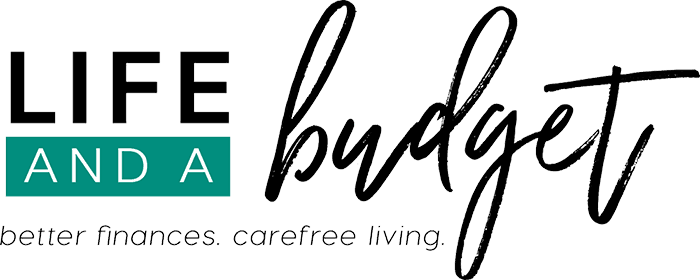Hey y’all! Today you’re going to learn how to protect your hard-earned credit score, courtesy of a friend of LAAB. Do your thang, LaToya (not me…her name is my name…)
Building a great credit score isn’t easy. And rebuilding a bad credit score is even less so. So after you’ve spent months, or even years, sending dispute letters, paying off balances, and waiting patiently for the baddies to drop off your credit score, the last thing you want to do is lose points due to completely avoidable mistakes. You owe it to yourself to protect your hard-earned credit score and you can do it with these seven tips.
Protect your hard-earned credit score by paying everything on time – and I mean everything.
The biggest factor that goes into your credit score is your payment history. It almost goes without saying that the most important thing you can do to protect your credit score is to pay your bills on time. This is especially important for bills that are regularly reported to the credit bureaus, like credit cards and loans. Missing payments by 30 days late or more can damage your credit score tremendously.
You don’t get a pass on bills that aren’t regularly included on your credit report. If you get too behind on these bills, they can wind up in collections and on your credit report, tanking your credit score.
Don’t take on more than you can afford.
This goes for credit cards, loans, and other monthly obligations. The more expenses you have, the harder it is to pay them all. When you have too many expenses, you end up juggling bills and may resort to drastic measures (missing payments and using credit cards) to make ends meet.
It’s easy to spread yourself too thin if you’re not paying close enough attention to what you’re taking on. Keep your spending in check and avoid taking on monthly payments that would tax your budget.
Monitor your credit score.
Anything you want to control requires consistent attention. That includes your credit score. Checking your credit score often (once a month at a minimum) will keep it in the forefront of your mind, reminding you to make the daily financial decisions that will protect your credit score.
There are a number of ways you can monitor your credit score for free: CreditKarma.com, CreditSesame.com, and Quizzle.com are a few. Your credit card issuer may provide a free credit score through your online account or on your monthly billing statement.
Make sure you’re getting a truly free credit score by avoiding any site that asks you to enter your credit card number for a free trial. The fine print on these sites requires that you cancel the trial subscription within a certain amount of time. If you don’t cancel the trial, your credit card is charged each month for a subscription service. A truly free credit score will not require any credit card information from you.
Keep your credit card balances low.
After payment history, the second biggest factor that affects your credit score is your credit utilization. Credit utilization is the ratio of your credit card balances to their credit limits. The higher your credit card balances are, the higher your credit utilization ratio is, and the more your credit score will be affected.
Paying your credit card balance in full each month is ideal for avoiding interest and staying out of debt. However, to protect your good credit score, you only have to keep your credit card balances low.
Generally, it’s best to keep your credit card balances below 30% of the credit limit. The lower the better. People with the best credit scores keep their balances below 10% of the credit limit. That means if you have a credit card with a $3,000 credit limit your balance should be lower than $900.
Note that your credit score is calculated based on the credit card balance listed on your credit report, which may not necessarily be your current credit card balance. The balance that shows on your credit report is the balance as of the end of your last billing cycle – that’s when credit card issuers usually update your account. For your credit report to reflect a specific balance, you’ll have to pay your credit card earlier in the billing cycle, even before your credit card statement arrives.
Do not cosign.
The generous side of you may see no problem in cosigning a credit card, loan, or apartment for a friend or family member. However, the logical side of you has to prevail in this situation. Cosigning is a bad idea in a majority of cases. You see, the person you’re cosigning for has less to lose if they default on payments because they already have bad credit. You, on the other hand, have worked hard and sacrificed for a great credit score. There’s no guarantee the other person will keep up with their payments and any late payments will hurt your credit score just as much as if they were your own debts.
You know the saying, “Give a man a fish and you feed him for a day. Teach a man to fish and you feed him for a lifetime.” The better way to help to point them in the direction of resources that will help them improve their credit score so they can qualify for things without needing a cosigner.
Watch for signs of identity theft.
With businesses being hacked and suffering data breaches every day, your personal and financial information is more at risk than ever. Hackers use stolen information to open accounts in your name or sell the information to someone who will do the same.
Identity theft can wreak havoc on your credit score. While you’re not legally responsible for any unauthorized accounts or purchases, working to clean up your credit after identity theft is difficult and time-consuming.
Many identity theft victims don’t don’t realize they’re a victim until they apply for a credit card or loan and are denied. Monitoring your credit report and score throughout the year will allow you to catch identity theft before it gets out of control.
If you spot anything suspicious on your credit report, like suspicious inquiries or accounts, dispute these and place a fraud alert on your credit report. The fraud alert does not hurt your credit. Instead it tells a business who checks your credit report to take a few extra steps to confirm your identity before granting credit. This will prevent thieves from opening additional accounts in your name.
Close accounts if you’re losing control.
You might have to go a step further and close your credit card accounts if you can’t keep your spending under control. While it’s generally better to leave your credit card open so that you have positive payment history on your credit report, closing your credit cards you can’t manage is better for your credit score. Pay close attention to your spending and debt habits so you can spot and deal with anything that will put your credit at risk.
Author: LaToya Irby is a credit educator and the founder of CreditRodeo.com, where she helps people understand how credit really works. Download her free guide to raising your credit score and get your credit in the best shape ever.

